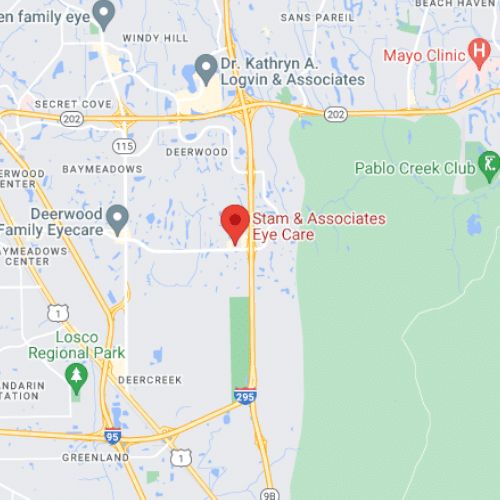Can Macular Degeneration be Reversed?
Macular degeneration is one of the leading reasons why people lose their vision in the entire world. In the U.S. alone, around 11 million people suffer from some degree of macular degeneration, and that number is expected to rise to over 22 million by the year 2050. In adults, macular degeneration is the single most common cause of the loss of eyesight in individuals over the age of 60, when it’s referred to as age-related macular degeneration. If you or a loved one has already been diagnosed with macular degeneration in Jacksonville, FL, you may be wondering if there is any way this condition can be reversed.
What is the Macula?
To understand the seriousness of macular degeneration, it’s helpful to know just a little about the anatomy of the eye. The retina is a very thin layer of tissue that lines the back of the eye. This tissue contains photoreceptor cells known as rods and cones. The macula is the part of the retina that is near the center, and its purpose is to focus incoming light so that you have sharp, clear vision. The macula has a very high concentration of photoreceptor cells that detect light. When the macula is damaged, as happens with macular degeneration, vision is distorted.
Macular Degeneration Cannot be Reversed
The bad news is, the damage from macular degeneration cannot be reversed. The macula is not replaceable, so whatever damage is done to it, cannot be fixed. While this may change as new technologies emerge, at this time, it’s best to get macular degeneration diagnosed as soon as possible so that further damage can be avoided.
How Macular Degeneration is Diagnosed
The best way to detect early onset macular degeneration is through eye exams. During an eye exam, your optometrist uses equipment to detect the presence of eye problems, including macular degeneration. If issues exist, steps can be taken to slow or halt the progression.
Your optometrist in Jacksonville, FL cannot stress enough the importance of twice-yearly eye exams to detect macular degeneration and more. Contact us today to book your next eye exam.





Leave a Reply
Want to join the discussion?Feel free to contribute!